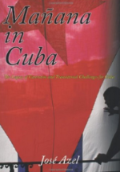Joining this effort social scientists Christopher Achen and Larry Bartels explore, “why elections do not produce responsive government” with their book “Democracy for Realists.” Here, I borrow from their work to overview some concepts of voting behavior.
In our traditional understanding of democracy we, as voters, have preferences about what the government should do, and we elect leaders that vow to enact policies inline with our preferences. This future-looking romantic theory of democracy assumes that engaged citizens are capable of informing themselves on the many issues a nation faces, and can master the policy intricacies to judge intelligently. The romantic theory of democracy also posits that voters can asses the qualifications of competing candidates and then vote for the candidate that best matches their own political values.
However, contemporary political science has found little evidence that voters fit this idealistic profile. This raises questions as to whether citizens can properly perform the role required of them by the romantic theory of democracy. Scholars of public opinion tell us that, notwithstanding the dramatic increase in the variety of mass media, the citizenry’s level of political knowledge remains very low. It turns out that, although today we have available an unprecedented level of political information, we have discarded the most thoughtful resources in favor of an assortment of entertainment sources. Round-the-clock media has resulted in an increase in the variety of information without changing the average level of political information.
An alternative theory of democratic voting is the “retrospective theory of voting.” In contrast to the prospective romantic theory of democracy, the retrospective theory regards the voters as appraisers of the past performance of leaders. Voting retrospectively only requires voters to monitor their own and their fellow citizens’ well-being. That is, voters need not be informed or engaged as demanded by the romantic theory of democracy. Voters identify good or bad government performance according to how it has impacted their lives.
Voting retrospectively does not require the citizenry to know the precise polices of an administration or party. In order to ascertain performance, voters need only to asses how it has changed their own welfare or that of the nation. Retrospective voting expresses approval or disapproval for past performance and, as such, is a powerful instrument of electoral accountability. For example, voters’ assessments of economic conditions are very significant in determining election outcomes. Research shows that voters tend to reward incumbents for good economic times and punish them for bad times. Consequently, as an election rationale, retrospective voting functions to improve the economic competency of political leaders by retaining those that are competent economic managers and replacing those that are not. Retrospective voting induces leaders to strive for good economic outcomes in order to retain their jobs.
Scholars also point out that retrospective voting “lays no policy constrains on the governing administration; rather, the government is free to innovate, knowing that it will be judged on the results of its actions rather than their specifics.” In other words, in this rearview mirror thesis, election outcomes do not depend on ideas or political ideology, but rather on our approval or disapproval of the actual performance of incumbent political leaders or parties. In practice, democratic voting does not back up the conventional romantic theory of democracy.
While a bit cynic, the logic of retrospective voting appears sound. Most voters are busy with their lives and not able to devote the time required to understand the complexities of policy decisions. Instead, at election time, voters are content with asking whether things are going well or badly lately. In essence, and perhaps inelegantly, it is not political ideology but a look at the rearview mirror that best explains why we vote as we do.
Please let us know if you  this article. this article. |
|










No comments:
Post a Comment